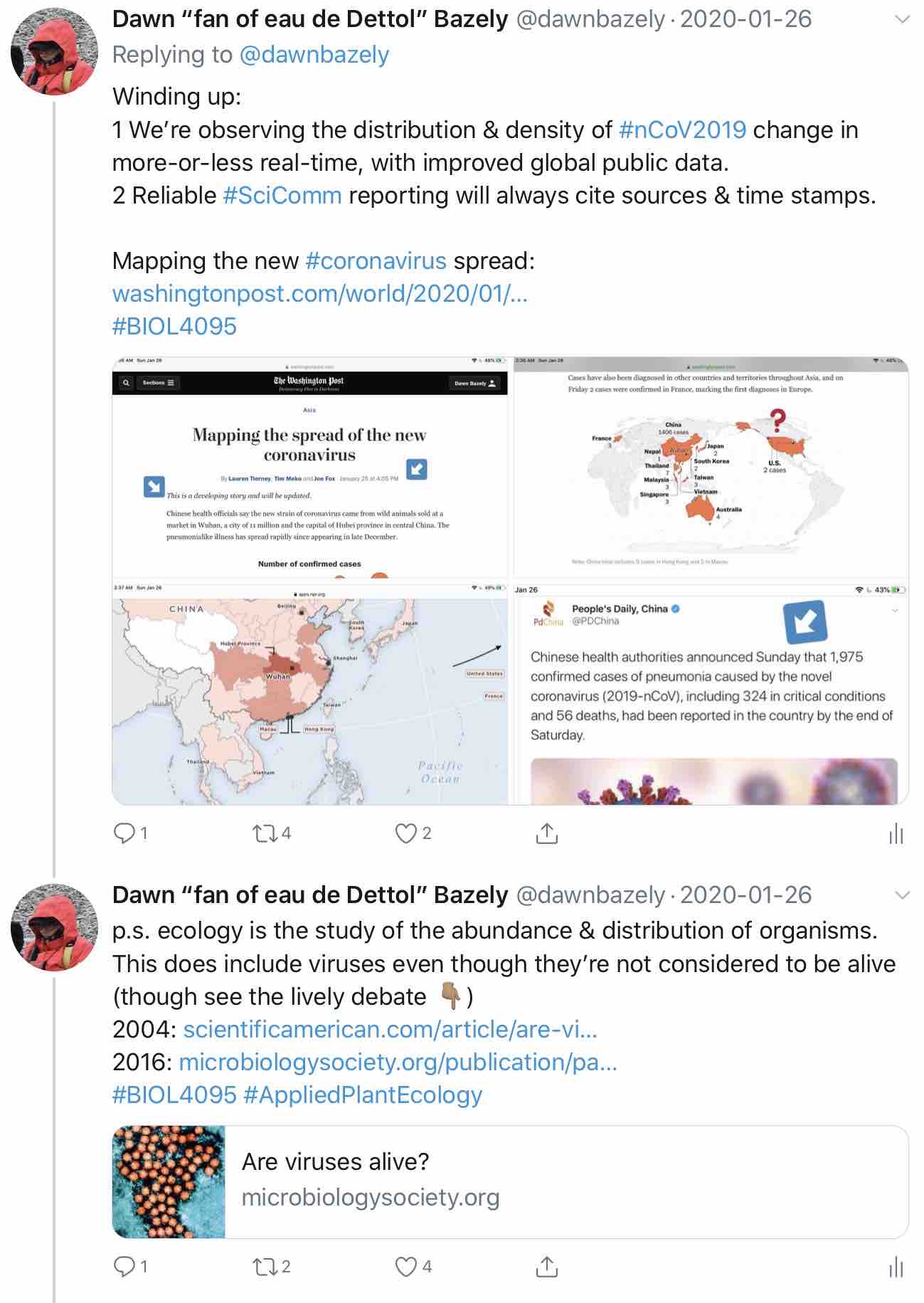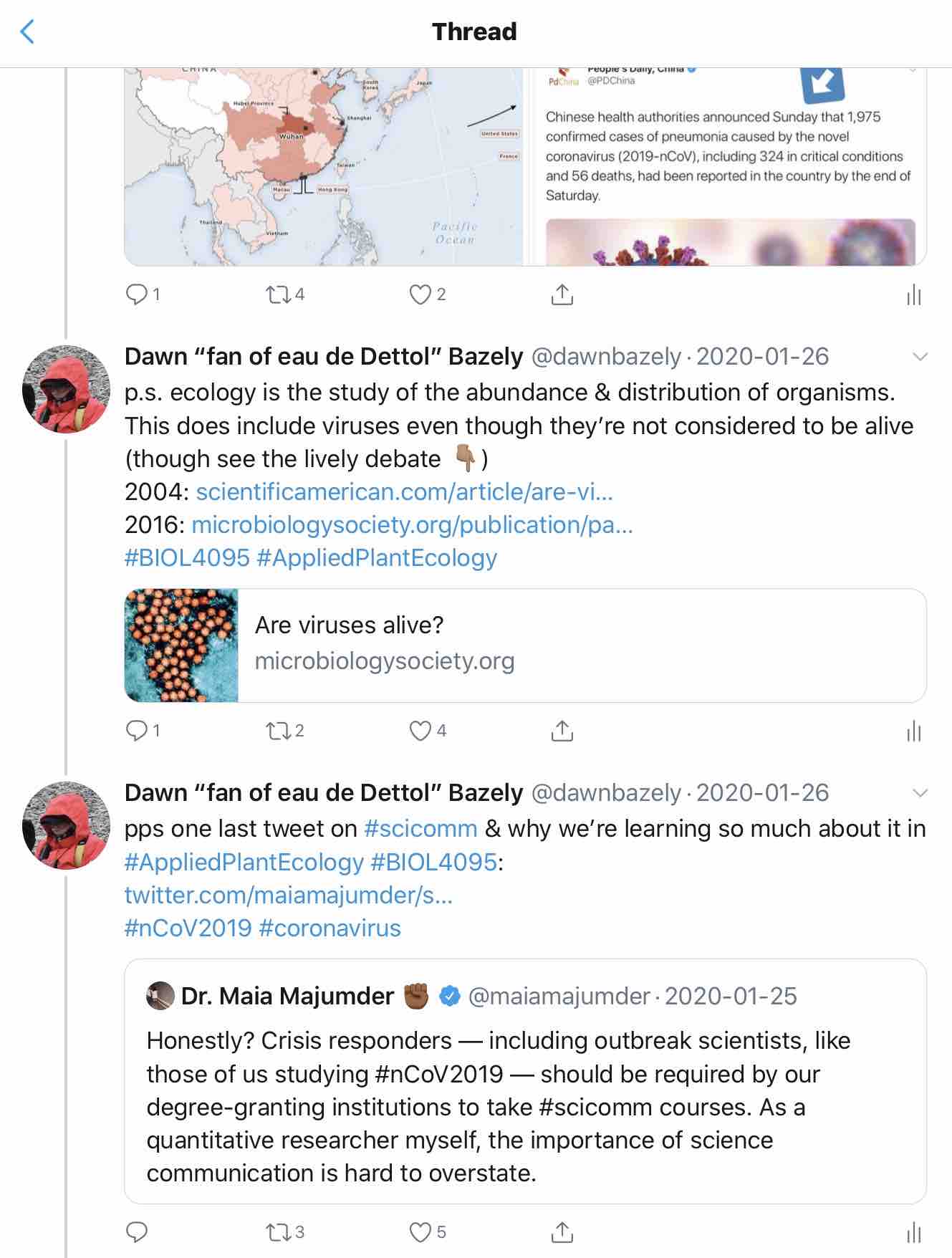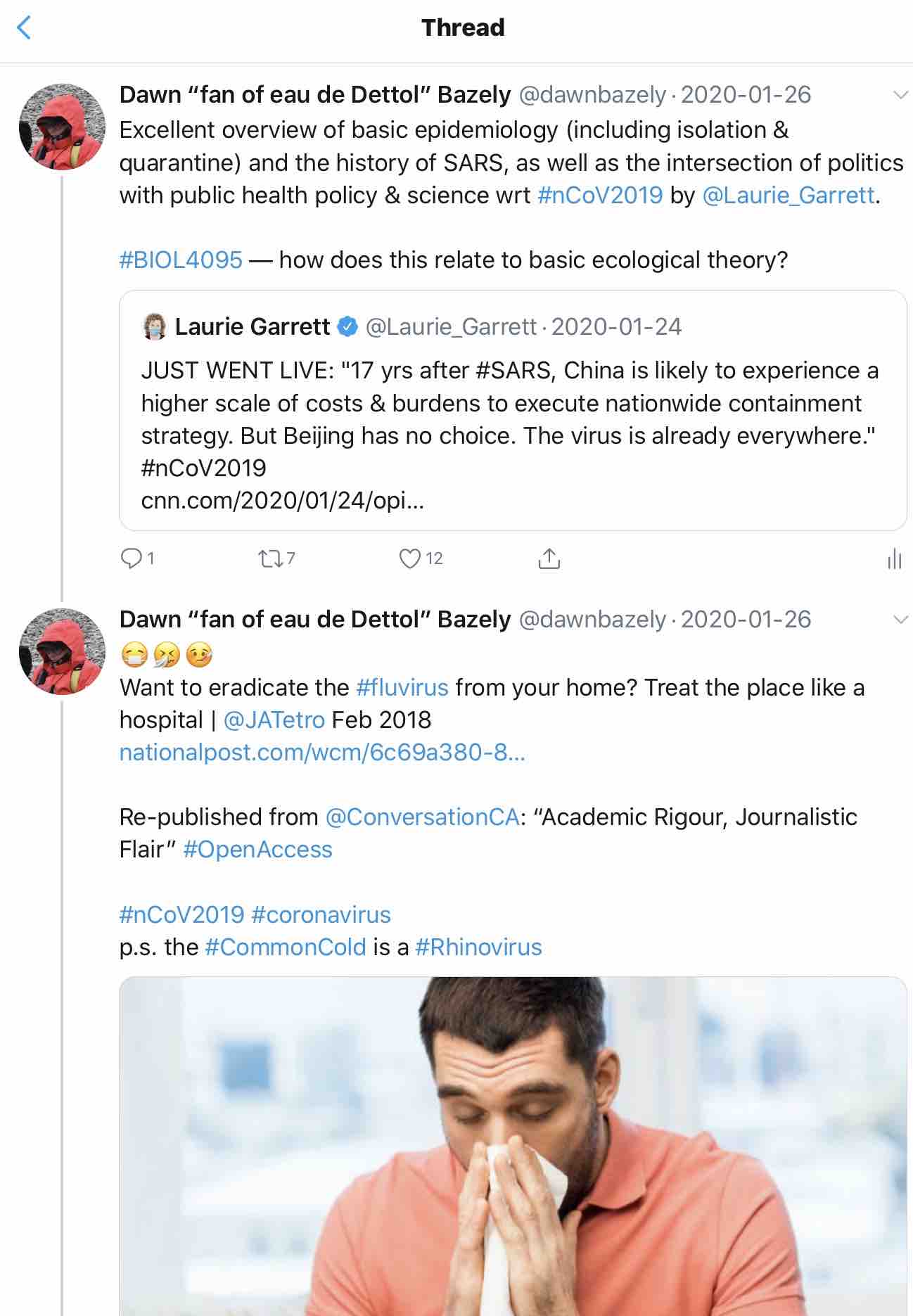It's August 2nd. I haven't yet posted on this lab blog in 2020. I did write some posts for my Applied Plant Ecology course blog. BIOL 4095 ran from January to April 2020. One of its 11 topics is invasive, non-indigenous organisms, which meant that I began including the spread of the novel virus, SARS-CoV-2 in my lectures starting in late January.
So, why have I been even more behind with posting to my lab. website than in recent years? I haven't been away in the field or doing public science in the arctic. This is my first lab. blog post in 2020 simply because pivoting to 100% virtual teaching has been very time consuming.
All field work, field trips, field courses and conferences began to be cancelled due to the COVID-19 pandemic at the end of February 2020. By that point, having followed n-CoV-2019 as the virus was first known, since mid-January, I already knew we were bound to be going virtual for the forseeable future. I was confident that I could comfortably pivot to 100% online course delivery.
York University was the second Ontario university out of the gate, following Western's lead, to cancel all in-person classes on Friday March 13, 2020. I was relieved to be past the very hectic first half of my 2020 Winter Semester and was looking forward to spending the last three weeks of term listening to student talks. I had planned that this would be followed by an unhurried reading of their essays and final exams in April. We had done lots of cool work on everything from Wikipedia editing to science policy, and students heard some great guest speakers.
The time-consuming pivot to online course delivery
But that was not to be. Since that Friday, I first worked 60 hour weeks to close out the Winter Semester, and by mid April I was working 70 hour weeks. This was followed by 80 hour weeks starting in mid May, when I began teaching one of the only virtual undergraduate field courses to be approved for delivery after the pandemic lockdown closed most university campuses in Canada and around the world. This blog will feature more about my field course in future posts. In case you're wondering if I am still standing, I did wind down to 5 day weeks of 8-9 hours a day on July 1st because I was simply very tired.
 Delivering excellent virtual (online) teaching, whether synchronous in real time, or asynchronous, takes much more time than in-person teaching. I'm highly experienced with using online teaching and collaboration tools and doing it well is still a time sink. It is ten years since York University switched to the Moodle electronic classroom platform, and at the time, I took some great workshops on the pedagogy and technical aspects of Moodle.
Delivering excellent virtual (online) teaching, whether synchronous in real time, or asynchronous, takes much more time than in-person teaching. I'm highly experienced with using online teaching and collaboration tools and doing it well is still a time sink. It is ten years since York University switched to the Moodle electronic classroom platform, and at the time, I took some great workshops on the pedagogy and technical aspects of Moodle.
Also, since January 2014, my courses have incorporated assignments on using social media for science communication and editing Wikipedia. So, I knew what I was doing with this rapid pivot to 100% online teaching, and it has still been overwhelming.
The grind of creating many well-structured and clear pages in my Moodle virtual classrooms for BIOL 4095 (Applied Plant Ecology) and BIOL 3001 (Biodiversity and Watershed Management field course), of coaching and supporting students to deliver Zoom talks, and developing field course labs. in which students do science from home, takes oodles and oodles of hours.
Four things I've learned since the COVID-19 Pandemic arrived in Canada:
 I'll end here, with four observations about teaching in a pandemic:
I'll end here, with four observations about teaching in a pandemic:
- Apart from one lecture on coronaviruses in the Biology undergraduate course on viruses that some of my 46 students took, they told me that I was the ONLY professor who covered the incipient pandemic in my lectures, and warned them about what was coming for the rest of term. This is still shocking to me. Why didn't my colleagues address the news in their courses?
- The pivot to delivering 100% online teaching was very time-consuming, even though I know what I'm doing. I wonder how my colleagues who have not taken any Moodle training in the last decade are feeling? I had to go from beginner to intermediate-advanced Zoom host in 8 weeks, and it was a steep learning curve.
- Students have needed MORE not less access to and contact with their course directors during this pandemic. I maintained DAILY virtual office hours on Zoom up to and after my Winter Term final exam, and I have done the same for my Virtual Field Course. Yes, it's tiring for me, but I am in a much more privileged position than many York University students, both undergraduate and graduate. Unfortunately, I have heard MANY stories of students not having heard back from their professors since all in-person classes were cancelled and learning went online. This is unconscionable.
- Those of us who have worked tirelessly to support the institution during the pandemic include many dedicated staff, from technicians, to administrators and IT staff. To them, I am eternally grateful for their collaboration and support.
- Dawn Bazely tweet thread January 26 2020 about covid19 2
- Dawn Bazely tweet thread January 26 2020 about covid19 3
- Dawn Bazely tweet thread January 26 2020 about covid19 4





